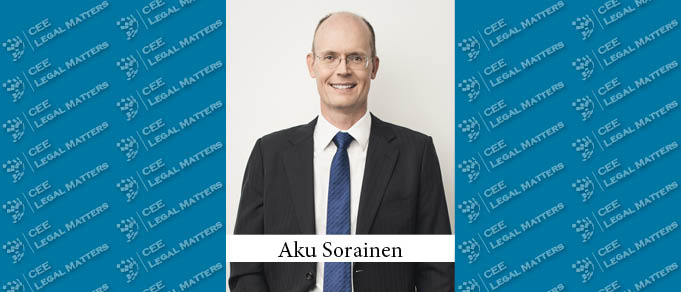A booming startup sector, unhampered by the war in the region, is the strongest suit of the Estonian market right now, while the country continues to focus on improving its regulation of FDI, crypto, and fintech businesses, according to Sorainen Senior Partner Aku Sorainen.
“The M&A market did, on average, slow down on account of the war, especially for those companies having elements of their value chain in Ukraine, Belarus, or Russia,” Sorainen begins. “Much like in the case of COVID-19 initially occurring – the market experienced a dramatic stop, but the investors then slowly began to come back.” Still, according to Sorainen, large transactions of over EUR 100 million are, by and large, on hold for now.
Turning to the real estate sector, Sorainen reports that “big-ticket real estate items have not yet picked up, in comparison to other M&A activity.” However, he reports that – “with construction materials being quite expensive and getting more so – there is no real negative impact on the pricing of the deals that are happening, especially since companies tend to be only moderately indebted, so sellers have plenty of time to wait as well.”
On the other hand, what hasn’t slowed down is the startup market, Sorainen says. “Two years ago, the Estonian startup market raised EUR 464 million. Last year, this figure was EUR 962 million, and this year – just in the first four months – this number reached EUR 1 billion,” Sorainen reports. “The war has not impacted startups in Estonia and the market is continuously picking up pace,” he says, noting that might be the case because of startups “not being truly local – they operate globally and can, honestly, relocate their headquarters if necessary, so the risk levels they incur are lower.”
Providing an update on the legislative landscape of Estonia, Sorainen mentions a new draft proposal for an FDI regulation that is due to pass this fall. “The law, if passed, will prop up more stringent barriers to entry into certain sectors, like energy,” he says, though the energy sector has been “very active, especially when it comes to renewables.”
Additionally, Sorainen reports that the financial supervision authority of Estonia is “planning to increase its control over crypto business in Estonia, as well as the fintech sector in general.” As he sees it, Estonia, which has been “famous for being tech-savvy and quite liberal in its fintech regulation,” is likely to increase the regulatory overwatch primarily because of anti-money laundering reasons. “Estonia did experience massive money laundering scandals a few years ago, related to subsidiaries of certain Nordic banks,” Sorainen explains. “That was a big hit for the country’s reputation, so reducing any and all AML-related risks is a priority for the authorities.”

















